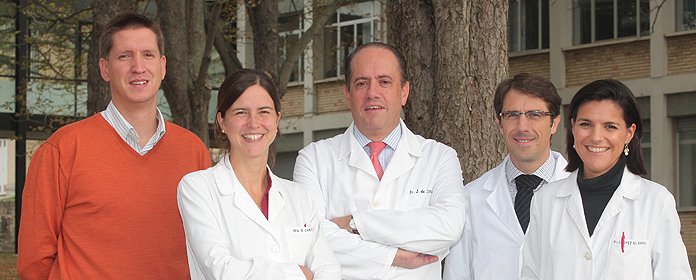Belief in safe sex may encourage young people to start having sex earlier, according to a new study. research
The University of Navarra study, published by a high-impact scientific journal, is based on the responses of 8,994 adolescents from the Philippines, El Salvador and Peru.

The belief in safe sex -that if a condom is used there is no risk of pregnancy or HIV infection- could encourage adolescents to start having sex earlier than young people who do not share this belief. This is revealed by a research of the University of Navarra published by BMJ Opena high-impact scientific journal of the British medical journalassociation . The article is based on the responses of 8,994 adolescents between 13 and 18 years of age from the Philippines, Salvador and Peru.
The authors of article are Alfonso Osorio, professor of the School of Education and Psychology; Jokin de Irala, Full Professor of Preventive Medicine and Public Health and researcher principal of this project; and the professors of the School of Medicine Cristina López del Burgo, Silvia Carlos and Miguel Ruiz-Canela. All of them belong to the Institute of research Sanitaria de Navarra (IdiSNA) and the first four are also researchers at project ' 'Education of Affectivity and Human Sexuality' of the Institute for Culture and Society (ICS).
According to the study, this association between beliefs about safe sex and sexual initiation occurs even taking into account other possible factors such as age, sex, economic level partner or religiosity.
"Although several experts had been warning that this effect was possible, this is the first study that analyzes it empirically, with real data , and that also finds similar results in three different countries, with the same methodology and independently of other factors," the authors indicate.
Revise condom promotion messages.However, they point out that given the cross-sectional design of the study, these results should be confirmed with a longitudinal study (following up young people over several years) to confirm this association, in order to design more appropriate strategies for promote healthy sexual habits.
In relation to the data obtained, the authors emphasize that "parents, educators, public health authorities and the media may be interested in reviewing how condom promotion messages are conveyed to young people," stressing the need to remind young people that "condoms never completely eliminate the risk of pregnancy or HIV transmission."
See article:'Safe-sex belief and sexual risk behaviours among adolescents from three developing countries: a cross-sectional study' (BMJ Open).
